Last Hurrah for Chivalry (1979)
Directed by: John Woo
Written by: John Woo
Starring: Chiu-Hua Wei, Damian Lau, Kong Lau, Pai Wei
AKA HAO XIA, MAGNIFICENT HEROES
Hong Kong
AVAILABLE ON BLU-RAY: June 24th, from EUREKA ENTERTAINMENT, in the ‘LAST HURRAH FOR CHIVALRY/HAND OF DEATH: TWO FILMS BY JOHN WOO’ BOXSET
RUNNING TIME: 106 mins
REVIEWED BY: Dr Lenera, Official HCF Critic
Rich and well respected martial artist Kao Pun’s wedding day is ruined when the evil Pai shows up and his prostitute wife tries to kill him, leading to a massacre. Kao begins to heal but is told by his master that he could never beat Pai in a fight, so he sets off to find a martial artist who could possibly take on this tyrant. He meets “Magic Sword” Chang Saam, but Chang has vowed to stop fighting and spends his time nursing his sick mother, so Kao hatches a devious plan to get him to go back into action. Along the way Chang meets and befriends assassin Ching Yi….
I first encountered the action cinema god that is John Woo when I was about 20 and I read a review of The Killer in a video magazine [yes I’m that old] where the reviewer said he’d never seen anything like it. After searching my four [yes, I was lucky] video shops for the film, the fourth one had it and after my first viewing I thought that I hadn’t seen anything like it too. Successive films made me a fan but his very early work was hard to find, and this is unbelievably my first viewing of Last Hurrah For Chivalry which never came out on video over here. I somehow managed to miss the UK DVD release, in fact I didn’t even know that there was one, which was a great error on my part. Eureka Entertainment have released it in a set with another Woo traditional kung fu film Hand Of Death, my review of which will be up soon after this one, but I’m doing Last Hurrah For Chivalry first because Eureka have listed its title first in naming their set, even though chronologically it came out after the other film. Being a huge Jackie Chan fan, I will have some background information on that film to give you, but sadly not this one which is a shame – as this one flipping rocks, certainly one of the best period martial films of the old school I’ve watched in a while, even if the switch from relative realism to goofy fantasy towards the end is rather strange and even jarring.
A story line that gives you a bit more than the typical ‘revenge’ tale even if it still incorporates it [as most of them do], combined with plentiful and quality fight sequences, is probably the most you can sensibly ask of a film like this, and this one certainly has those elements in spades. The plot has some genuine surprises, while there’s one fight around the middle that’s probably one of the best swordplay fights of the ‘70s – honestly, it’s that good. However, what really made this film so interesting for me is how much it prefigures Woo’s later ‘heroic bloodshed’ work [A Better Tomorrow, Hard Boiled et al], so much so that even Woo fans who have no interest in the kind of movie Last Hurrah For Chivalry is ought to get a lot out of it. Aside from the directorial style which is already very assured and technically ahead of most of the other filmmakers working in this genre at the time including Chang Cheh who was Woo’s mentor before he moved studios from Shaw Brothers to Golden Harvest, Woo’s favourite themes of brotherhood, sacrifice, betrayal and honour play a huge part, and when its two bonding heroes are in action, having conversations and trading quips in between dispatching loads of bad guys, it really is just like watching the likes of Chow-Yun Fat and Danny Lee again. I expected this film to have a few of the elements that later became common in Woo’s work, but not in anywhere near as much quantity as is actually did, and there were times when I was grinning from ear to ear. And yes, the blood really flows.
Having a song about friendship and doing great deeds in battle playing over opening credits which appear over images of a book and lovely water colour paintings of the main characters should be some indication that this won’t quite be typical fare, even if will contain most of the elements that we know and love. I have to admit, the original Chinese title Magnificent Heroes isn’t anywhere near as good as the monicker used by the West. We begin with a wedding party, but it was clearly a mistake for Kao to marry a whore as she grabs a dagger and stabs him as ninjas [well, they’re basically ninjas going by their garb and actions even though ninjas of course were Japanese not Chinese] kill off most of the hosts and guests in the first of the film’s many set-tos. Kao isn’t slain and wants revenge, but he’s in no state to do that, and certainly in no state to wield the ‘Moon Shadow Sword’ that his master won’t let him have. So what should he do but get somebody else to carry out the revenge for him. Ching is a wondering assassin who we first see beating up a guy who hits some kids who ran off with the chicken he was eating. But it’s Chang, a legendary fighter seemingly retired, whom Kao wants. He’s first seem climbing the wall of a brothel so he can see who’s playing that zither music he’s drawn to – and promptly encounters Ching dangling from a tree. Ching seems to have something going with the delectable Sau Sau, though most of the time he’s more interested in drinking wine than her – even if it’s from a vase on a shrine. In fact there’s a hell of a lot of drinking throughout this film and Ching consumes most, though not all, of it. I wondered if Chang was going to fall for her too, so we had the old routine of two friends in love with the same woman, but this doesn’t really happen, a good example of the way this film doesn’t always go where you expect.
Even if you ignore the odd bit of slapstick which have more than a whiff of studio interference about them [comedy kung fu films were quite a thing at the time], the tone is a bit light for a while, unless I’m mistaken and scenes like where Chang beats the crap [and I mean it, he really goes for the guy for over a minute] out of his sister’s boyfriend for refusing to marry her [we’re not told there’s any bun in the oven] were intended to be taken seriously and actually provide a dark element to Chang and others. Woo often went for over the top melodramatics in his later classics, so who knows? Chang and Ching keep on bumping into each other and helping each other out in scraps, though Chang still won’t pick up his sword. Pai is still being totally villainous, liking nothing more than choosing a few of his trembling pupils [it’s hard to believe that he still has any] to attack him so he can show off how good he is and kill them. Kao decides on a ruse to get Chang to do what he wants him to do, but things go wrong and people start winding up dead all over the place, and for a while I’d imagine that it would be a bit hard for someone who wasn’t concentrating on the film to totally follow what’s going on. This type of film is known for having simplistic plots, but actually quite a few of them really pile on the double crosses and so forth, and it’s easy to get lost. I just think it adds to the fun. You expect there to be some Better Tomorrow-style betrayal in our trio of supposed buddies, but there may still be some surprises in store after this, and I’m not necessarily talking about the influx of fantastical elements in the final quarter of what is previously relatively realistic, with opponents who burst out of the earth, a guy who fights while he’s asleep [not even Jackie Chan got to do that one] in the silliest of the film’s brawls, and a main villain who disappears into the air at periodic intervals during the lengthy final showdown. Maybe Woo, who also scripted, was somewhat mocking a genre he been working in for some time and probably wanted to get out of.
There is some without weapons, but it’s mainly swords, spears and the odd more unusual device – along with some fire breathing that you can see is being done for real. That sword fight I mentioned earlier is an incredible display of skill and speed from Damian Lau and Wai Pak [the member of the original Five Deadly Venoms who soon left the group and the Shaw Brothers after their first year of stardom]. I generally think that the Japanese do swordplay better than the Chinese in films – their fights may usually be short but the technical prowess tends to be greater to my eyes – but this scene is one notable exception. The only problem with it being so good is that all the action that follows can’t help but be just a little bit of a let down despite its quality, despite the number and variety of opponents that our heroes have to contend with. Both Lau and Pack seem to overplay their characters at the beginning, as if the film was shot in sequence, but then settle into their parts. Pak is able to evoke both heroism and a brash naivety at the same time, though Lau is really too young to project world-weariness convincingly. His character was based on real-life assassin Jing Ke, who also turned up in The Emperor and the Assassin and Hero. The two have the required chemistry when together though, and are such a good team that I wished they’d been paired in other movies. Perhaps the most familiar person to many will be Hoi Sang-Lee who was in countless martial arts efforts [if you’ve watched more than five traditional kung fu movies from this period, then you will have seen him], including classics such as The 36th Chamber Of Shaolin and Warriors Two. He’s in great villainous form here. Lau Kong as Kau has the hardest role because the role requires him to evolve considerably. He’s hammy in places but mostly pulls it off. As for Woo, when you get two people about to have a duel and the camera pans to the top of their blades, you know that this is a director trying to do a bit more. The camera is more mobile than you normally get, there’s a bit more slow motion, and you get some Akira Kurosawa-style wipes when transitioning between scenes.
The musical score by Frankie Chan may sound poorly recorded and could have done with some different themes to support the different aspects of the story, but it’s quite diverse in its style and at least sounds like a fully original score, without obvious library music or thieving from American and British movie soundtracks [the movie soundtrack fan in me loves trying to spot what films music has been nicked from]. Now I’ve finally got to see it, I feel that Last Hurrah For Chivalry, which actually flopped at the box office and led to Woo being banished to Taiwan to make comedies until Tsui Hark came to the rescue [and the rest is history!], has been under-appreciated and under-exposed. It’s a cracking martial arts movie that tries, and at least partly succeeds, to be something more, but it’s also an important milestone in the career of its director. And it’s certainly miles better than Mission Impossible 2 or Paycheck.
Rating: 









Following on from Eureka’s stunning looking release of Wheels On Meals, we have another terrific 2k restoration. Viewing it on my medium-sized TV, you’d never guess it wasn’t 4k. As with the Jackie Chan film, I don’t know if it’s because Eureka did their own work on it [they aren’t allowed to do anything to the 4k restorations apparently], or because controversial restorers I’Imagine Ritrovata have suddenly began to know exactly what they’re doing, but Last Hurrah For Chivalry possesses near-perfect colour, along with even grain distribution and considerable detail – the latter of course showing up the obviousness of the sets! Years ago, I’d have never believed that a film like this would ever look anywhere near as good.
We have two Cantonese audio tracks, stereo and mono, plus stereo Mandarin and English options. For some reason, the latter two feature an instrumental version of the title song over the opening credits instead of vocals. While I have an undying love for the cheesy, poorly recorded English dubs on films like this, the one for this movie sounds like it was done later – audio-wise it’s much better but lacks that ‘classic’ flavour. Therefore I watched most of the movie with the Cantonese mono track, which is a bit louder than the other three options. The stereo Cantonese track seems faithful to the mono and has no additions or alterations.
Eureka have typically opted not to use the previous audio commentary for the film by Bey Logan that was on the Region ‘A’ Dragon Dynasty DVD, though they haven’t ported over the two interviews and the featurette that were on that release either. I can only assume that Logan was featured in those too, likewise the featurette on the Region ‘B’ CineAsia DVD. We do have an interview with Woo from another DVD release, possibly French. He talks of his influences from samurai films to westerns on the film, how one character represents him, how he loves the film despite his regrets at making the dialogue too modern, and most interestingly says that he wanted a make a gangster film [which I assume later became A Better Tomorrow] but it was considered uncommercial so he made Last Hurrah For Chivalry instead. As usual, Woo is humble, very likable and just a bit hard to understand.
Now I was looking forward to the audio commentary almost as much as the film. Who needs Logan when you have Mike Leeder and filmmaker Arne Venema, the duo who did such great talk tracks on Eureka’s release of the Once Upon A Time In China films? The two compliment and spark off each other and never shut up, delivering a continuous barrage of information, observation and appreciation with just a bit of a sense of humour. Sometimes they do drift off the film in question, but never lost my interest, me being fascinated to learn that the only original print of The Big Boss 2 was owned by a cinema owner in Zambia, and saddened to hear that no original negative exists for Hard Boiled [though it sounds as if a new release of that could be coming our way at some point anyhow, which is hugely exciting]. The way the film already has many of the Woo traits is repeatedly mentioned, as is the nature of the Hong Kong industry in the good old days, where everyone mucked in and did different jobs yet where movies tended to only stay in cinemas for a week. I must admit that I never made one scene out to be full of sexual symbolism like Leeder does, but it’s an excellent track – but then I was sure that it would be.
This is almost a top grade martial arts movie, certainly a fully fledged John Woo film, and in a beautiful restoration. Highly Recommended.
SPECIAL FEATURES
*Stunning 1080p on Blu-ray, from brand new 2K restoration
*Cantonese, Mandarin and English audio options
*Optional English subtitles
*Archival interview with John Woo
*Theatrical trailer
*New audio commentary by martial-arts cinema authority Mike Leeder and filmmaker Arne Venema
*Reversible inlay featuring original poster artwork
*Limited Edition Collector’s booklet featuring new writing by film writer Matthew Thrift [2000 copies]

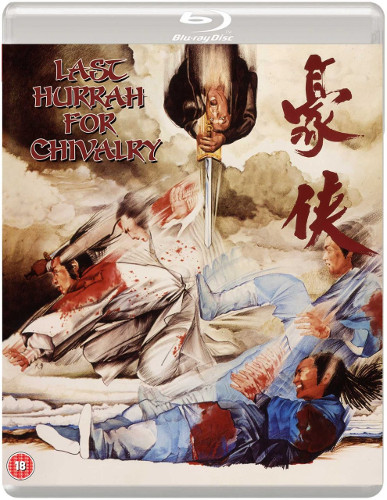
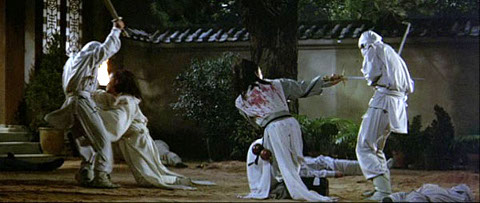
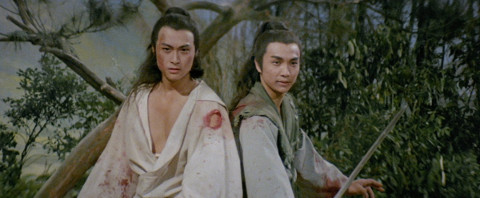

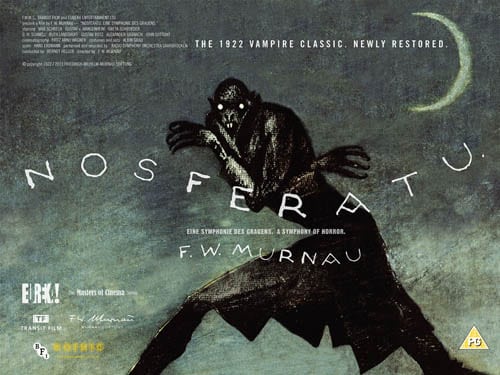
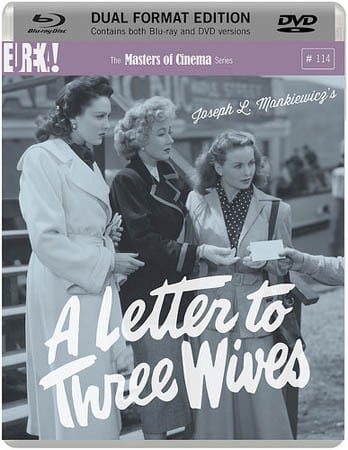

Be the first to comment